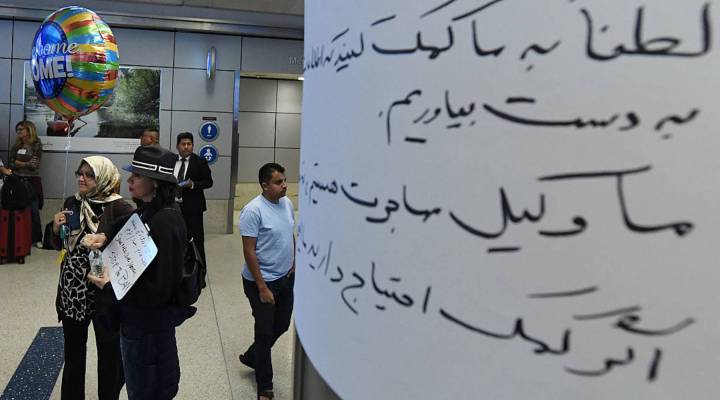
How Iranian-American businesses are handling the travel ban
How Iranian-American businesses are handling the travel ban

According to the U.S. Census, about a quarter of people who have Iranian ancestry in the U.S. live in Los Angeles, California. Estimates vary, but the government pegs the number at around 120,000 in the metro area.
Tehrangeles, as some call it, is a unique immigrant community, residents are well-established and relatively wealthy, many of them came to the U.S. following the Iranian Revolution in 1979.
Bijan Kahlili has owned a bookstore in Los Angeles for more than three decades, and runs a phone hotline for Iranians, much like a 411 hotline.
“We had tremendous phone calls for immigrant attorneys to be able to talk over there situation and the family situation.”
Like other residents from Iran, Kahlili is part of the community of people trying to understand what President Donald Trump’s travel ban will mean for them. That question is especially difficult for entrepreneurs and businesses who rely on travel.
Ivan Light, Professor Emeritus at UCLA, has focused some of his research on Iranian entrepreneurs in Los Angeles.
“What we found is that they spent a lot of time going abroad to trade fairs. And when they went to trade fairs, they met people — often not Iranians — with whom they wanted to trade.”
Basically, those fairs helped them meet people that they could potentially do business with internationally. If you are in the business of trading with international partners, and personal connections are a big part of that business, not feeling safe to travel could put you at a significant disadvantage.
While Khalili is unsure what will happen in the future, he’s heartened by the protests he sees in response to the ban.
“I never had any problems with my fellow Americans, to bother me or to disturb my business. Or, always they’re supporting the culture. It shows that Americans really support the other people from other countries. And this is a good sign. Shows still that humanity is not dead.”
There’s a lot happening in the world. Through it all, Marketplace is here for you.
You rely on Marketplace to break down the world’s events and tell you how it affects you in a fact-based, approachable way. We rely on your financial support to keep making that possible.
Your donation today powers the independent journalism that you rely on. For just $5/month, you can help sustain Marketplace so we can keep reporting on the things that matter to you.


















